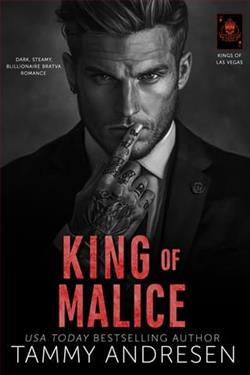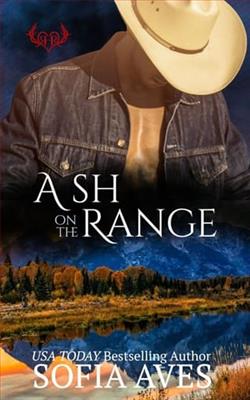Page 71 of Warrior Queen
Morgawse and all the children were in there, with Maia, who was carrying a hefty woven basket. The children, from sturdy five-year-old Medraut down to toddling eighteen-month-old Archfedd, were running up and down the central aisle in an energetic game of chase. The motes of dust they were kicking up danced in the sunlight streaming through the open doors. None of them could catch Medraut, who was skipping about between the tables and shouting taunts, mostly at Amhar.
Morgawse turned to me with an excited smile. Rhiwallon’s death seemed not to have touched her, even though her own son was closest to becoming a warrior himself. “Gwen. I was just wondering whether I should come and waken you. Arthur took all the warriors, first thing, to help with the harvest. We women are to take down food for their mid-day meal.”
“We’re goin’ to the village!” sang Medraut, climbing onto one of the tables. “We’re goin’ to have a picnic.”
Amhar came running up to me, panting breathlessly and closely followed by Reaghan. “Mami! A picnic! We’re goin’ outside!”
“Can we take Seren?” Medraut shouted at me from the tabletop. “Can I ride her? I want to ride Seren.”
I held up my hand, glad of this chaotic distraction, this normality brought on by our children. They couldn’t be expected to mourn. “Seren can carry the picnic,” I said, in my firmest tone. “You children can walk. Only the youngest need to be carried by Seren. Certainly not you, Medraut, with your long legs. Nor you, Amhar.”
Two sulky faces regarded me, but not for long. “Race you to the gates,” Medraut shouted to Amhar, leaping down off the table with amazing agility for one so young. He bounced up, but Morgawse managed to grab him by the back of his tunic and haul him back. “No, you don’t. You stay with us. No racing off and leaving us to search for you. Neither of you.” She turned her gaze on Amhar as well, too easily led astray by his older cousin. “If you come, you both have to promise to behave and stay with us.”
Amhar stared at her, wide-eyed, awed by her tone. “I promise.” He meant it.
Medraut stuck out his lower lip. “Do I have to?”
His mother nodded. “You do. Or I’ll leave you here. Under guard.”
“In the lockup?” suggested Amhar, brightening at the prospect of his friend being locked in that stinky hole.
“Not the lockup!” Medraut’s eyes widened, and his voice rose in panic. “I promise to be good.”
Maia moved closer to whisper in my ear. “She wouldn’t really, would she?”
I had to laugh. That was what this day needed– laughter and children. I shook my head with vehemence. “What? Her little prince in the lockup? Not likely. But luckily, he doesn’t know that.”
Once Seren had been caught, quickly groomed, and the basket of picnic food transferred to her paniers, along with Archfedd, who was too small to walk, we were ready to leave. It took us much longer than I’d expected– organizing four small children was like herding cats.
With Maia leading Seren and in charge of Archfedd, that left Morgawse and me with three boisterous youngsters to keep an eye on, which, despite the promises made by the boys, was not an easy task. And Reaghan was not behind the door at following their lead. With Medraut as leader, this was not always in the desired direction.
We descended the sloping road to the northern gateway and took the steep and stony track down into the village at the hillfoot. The morning by now was late on and warm already, with scarcely a breath of breeze. The branches of the few trees that stood around the small, white-washed, wattle-and-daub church hung lifeless in the still air, and the hum of flies over the village midden carried to us clearly.
We weren’t the only ones on a mission to take food to our menfolk. In dribs and drabs, the women of the fort were following the same route, meandering down the steep path with laden baskets slung over their arms and small children running rings around them. Some sang, the cheery harvest verses rising up to where hopeful pigeons circled, waiting for the bounty of the harvest. What a contrast to the horrors of battle– the rhythm of the seasons acting like a soothing balm on the hearts of tired warriors and sorrowful womenfolk. At least, that was how it was working on me.
In her pannier, Archfedd dozed.
A winding dirt track threaded its way between the small houses, past pig pens huddled next to verdant garden plots and tatty chickens scratching in the dust. A farmyard smell of middens, pig shit, and old soot hung about the village– a smell as familiar to me now as Hugo Boss perfumes had once been.
Harvest was a community task. Only a few of the oldest and least able of the villagers had remained behind– like the wizened, white-haired crone sitting in a wicker chair by her front door, rocking her grandchild’s crib as she strained rheumy eyes to stitch a garment. And the old man sleeping in the sun beside an equally ancient, gray-whiskered dog, whose deaf ears didn’t even twitch as we passed.
A fine-feathered cockerel strutted proudly on the thatched ridge of one of the houses, pausing every now and again to crow his superiority to any would-be rivals. Down below, a fat black and white cat sunned herself and her kittens on the stone sill by an open cottage door.
The kindly morning sun warmed my back as I strolled beside Morgawse, our children running on ahead excitedly amongst the crowd of other youngsters, but so far, wisely keeping within shouting distance. The threat of the lock-up must have loomed large.
A feeling as warm as the friendly sunshine burgeoned. This was how life should be– children playing together regardless of their rank, the sun shining down on a chubby baby sleeping in her pannier, a rustle of longed-for wind in the treetops, wheat and barley standing golden in the small fields, a harvest meal carried with us. Not fighting mired in mud, boys dying horribly with their innards hanging out. I shoved that unwelcome image away, not wanted on this day of tranquility.
We found where the men were working. None of the fields were more than an acre or two, enclosed either by stone walls, prickly hedgerows, or grassy banks in an effort to keep out the free-roaming livestock. Moving clockwise from the outside in, a dozen men worked in each field, stripped to their waists, their tanned and muscled backs bent as they swung their sickles in perfect rhythm with one another.
Each man took a clump of wheat in his left hand, sliced through the dry stalks just above ground level, then moved on to add to his bunch. When his hand was full, he laid the sheaf on the ground behind him. Boys followed the men, picking up the sheaves, banging their bases on the ground to level them, and twisting around a rope made of wheat stalks to secure them. Behind them followed the women, standing the sheaves of cut wheat up in groups to make stooks, seed heads uppermost, to allow the wheat longer to dry.
Amhar came running back to me from his friends. “Where’s father?”
I scanned the field, searching for Arthur, a king laboring by the side of his people. It didn’t take long to spot him working near Merlin, both of them naked to the waist just as the other men were. Their field was nearly finished, dotted with neatly stacked stooks, and only a small portion of the wheat still uncut in the center.
I pointed.
“Father!” Amhar sprinted through the narrow gateway into the field. He galloped across the short, freshly cut stubble, little legs pounding. “Father!”















